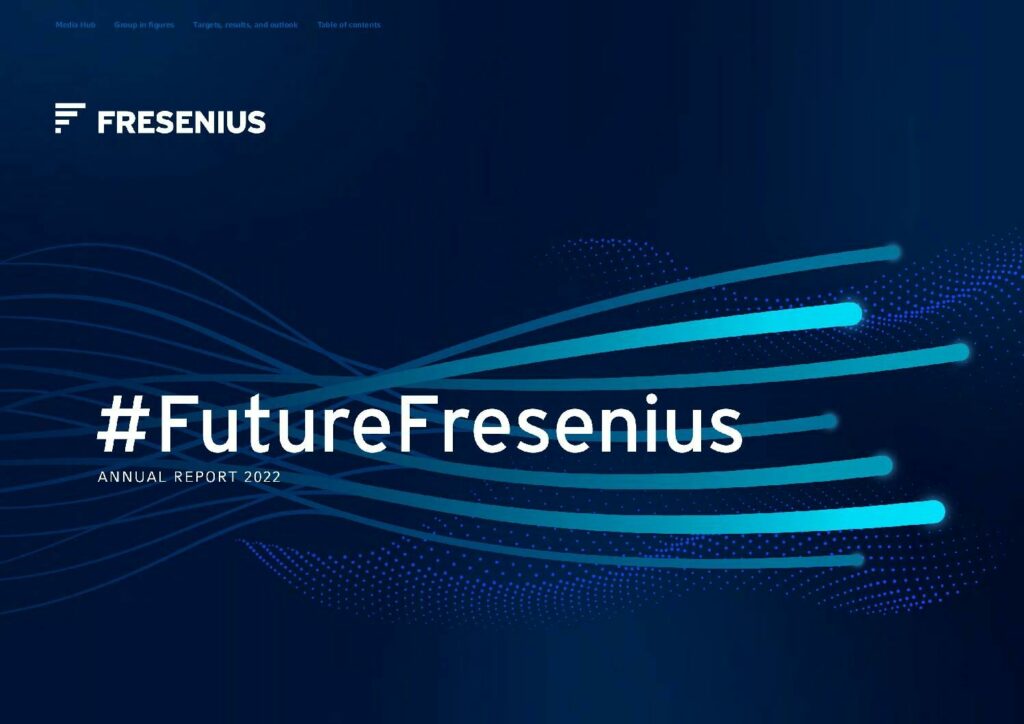In order to meet our future demand for qualified specialists, we use a variety of different tools to recruit staff. We monitor our working environment and competitive surroundings closely to identify potential. Furthermore, we use digital personnel marketing, organize our own recruitment events, and present the company at career fairs. The majority of the recruitment processes are virtual. Depending on the pandemic situation, it was also possible to conduct applicant interviews on-site again in the reporting year. In recent years, we have significantly broadened our range of personnel marketing activities and expanded our global careers website.
Fresenius Medical Care
The business segment is working to continuously improve its employer brand. The company aims to remain an attractive employer and recruit, engage, and retain excellent employees. To strengthen the competitive position, the company has various targets, such as reducing the voluntary turnover rate in the coming years. In 2022, the business segment issued a global Employee Value Proposition Policy outlining the core benefits that it wants to offer its employees as well as underlying processes, roles, and responsibilities.
Fresenius Kabi
The departments of Fresenius Kabi are supported throughout the process by the Recruiting Center’s team of experts in the search for and selection of suitable candidates. In this way, Fresenius Kabi aims to define individual requirements for vacant positions to improve the recruiting process.
The team of experts also draws on a network and in-house talent pool of candidates as well as approaching candidates actively. In the search for the best talents, it is essential to secure access to future talents for Fresenius Kabi while also focusing on the needs of existing employees.
Furthermore, Fresenius Kabi also uses temporary workers in the production and logistics areas to compensate for fluctuations in capacity utilization. Temporary workers in the administrative areas are particularly hired for short- and medium-term replacements such as in cases of pregnancy, parental leave, long-term illness, etc. Apprentices, student trainees, and interns generally work on the basis of employment contracts, specified for their internship or apprenticeship.
Fresenius Helios
The business segment still has to deal with a specific challenge posed by Germany’s Ordinance on the Minimum Requirements for Nursing Personnel in Hospitals (PpUGV), which has increased the need for nursing personnel, of whom there is a shortage on the labor market in some areas. The search for employees focuses on the following fields of action: training of qualified personnel internally, advertising for skilled workers, and searching the international labor market. Helios Germany participates in government-led campaigns to recruit personnel on the international labor market, as well as supporting employees who have qualified as nurses abroad in their applications or in their searches for language schools in Germany. Many international nursing professionals have completed academic training at universities. This applies also to Spain, where prospective nurses complete their training at a university. These forms of vocational training are mainly aimed at complex medical activities and an often strongly cooperative collaboration in medical teams. The German vocational training system is a generalist training, which enables its participants to care for people of all ages. Specialization is possible during and after vocational training. Bringing together the strengths of the different training systems is a great advantage and offers an opportunity to advance the overall quality of medical care in the hospitals.
In Spain, nurses can specialize through a specific program after graduation – choosing between occupational health nursing, family and community health, obstetrics and gynecology, geriatrics, pediatrics, and mental health. Helios Spain has established partnerships with universities to provide classroom training and to raise its attractiveness for potential candidates. The company’s own nursing schools complement the offering by expanding their training portfolio and adapting it to new market requirements.
Helios Spain aims to further expand its position as a leading private provider of healthcare services in Spain. The division participates in various online recruitment sites and has started to promote its main vacancies through social media campaigns in 2021. The quality of Helios Spain as an employer was confirmed by various external rankings in the course of 2022.
Fresenius Vamed
To meet the shortage of skilled workers, Fresenius Vamed has developed an employee referral program. Employees of some of the entities in Austria and Germany receive benefits for recruiting new employees, linked to the duration of the new employment relationships. Certain employee groups, e. g., members of the HR department, are excluded from participation in this program. In order to counteract the shortage of skilled workers in a timely and efficient manner, cooperation with various training institutions such as schools, universities, and technical colleges has been intensified in the specific areas of expertise. In addition, vocational training concepts are continuously revised so that Fresenius Vamed can train the necessary skilled workers. The business segment is also increasingly using digital recruiting channels in order to be able to address qualified specialists from abroad.
Fresenius Corporate
For Fresenius SE & Co. KGaA as well as Fresenius Digital Technology, the goal is to achieve a positive candidate experience in the recruitment process. It is supported by:
- the use of social media and the career website to make the activities at Fresenius tangible,
- clear communication in job descriptions that set realistic expectations for the position and working environment,
- respectful interactions with applicants through regular communication along the entire recruitment process and early communication in the event of rejection.
In the reporting year, it was again possible to hold some interviews on-site, in accordance with the applicable health protection guidelines, which are drawn up by the central Business Continuity function depending on the situation.

